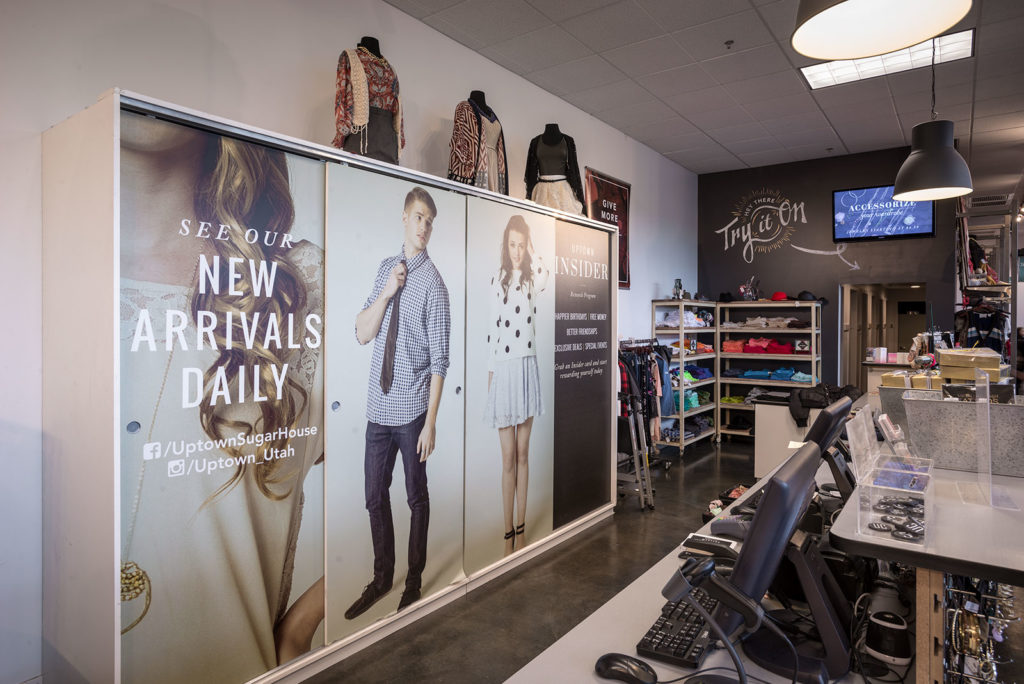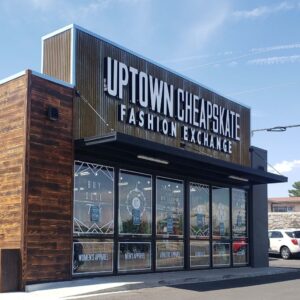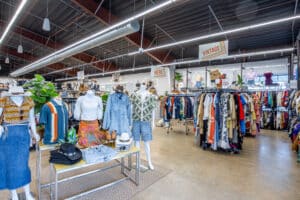Perhaps the biggest draw of resale clothing stores is the price per item. Buyers can find high-quality, gently used apparel and accessories for a fraction of the cost of a similar item in a traditional retail store. At a time when U.S. citizens have limited disposable and discretionary income, saving money on clothes is huge.
Shopping resale allows buyers to maximize their “fun budgets” and enjoy more of the things they like to do without sacrificing their clothing options. Stores like Uptown Cheapskate are well positioned to attract buyers who want more bang for their buck—particularly in today’s economy.
Understanding disposable and discretionary income
“Disposable income” is money that is able to be spent on both necessities and non-essential items after income tax is deducted. “Discretionary income” is money that’s able to be spent after necessities are purchased.
Necessities may include housing, food, utilities, student loans and clothing. However, some clothing items could be considered discretionary expenses if they’re a “want” purchase instead of a “need.” For example, fashion-savvy consumers often buy clothing for fun. To do this, these shoppers must designate a chunk of their discretionary income for clothes.
Most households try to maximize their discretionary income every month. Once bills are paid, they can use that money for fun things, like entertainment, dining out with friends, taking a vacation…or going on a shopping spree!
Clothing is a substantial disposable income expense
The United States had an average household disposable income of $51,147 as of December 2024. According to data from the U.S. Bureau of Labor Statistics, the average household (earning $101,805) spent money on a range of non-essential things last year:
- Food away from home: $3,933
- Alcoholic beverages: $637
- Entertainment fees/admissions: $951
- Toys and hobbies: $1,057
- Apparel: $2,041
As such a large piece of discretionary spending, it makes sense that many people would want to cut the cost of their clothing items as much as possible. Consumers are always in the market for name-brand clothing, and they’ve increasingly been turning to thrift, consignment and other secondhand stores to get it.
Resale extends discretionary income
With these kinds of numbers, it’s easy to see how the average person’s discretionary income can be depleted faster by buying clothes at retail prices. Fortunately, there’s another option for consumers: buying resale clothing!
Not only does resale clothing give buyers more options and diverse styles, it also helps them stretch their budgets further. People are buying clothes, regardless. By turning to secondhand clothing stores like Uptown Cheapskate, they can get those same name-brand garments in gently used condition for a fraction of the cost. When they spend less on clothes with each purchase, they’re able to enjoy more of what they love—whether it’s going to the movies or grabbing drinks with friends.
Even better, Uptown Cheapskate’s customers can earn money on their outgrown or older clothes by selling them back to our stores. Our entire program helps pad our buyers’ wallets while filling their closets—and that keeps them coming back for more!
Operating an Uptown Cheapskate franchise can offer a boon to you and your community. The business model allows you to make a living through entrepreneurship and provides a greater quality of life to fashion-focused customers.
Interested in learning more? Fill out our contact form to request more information and see if Uptown Cheapskate is right for you!



